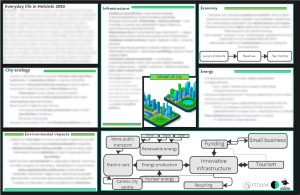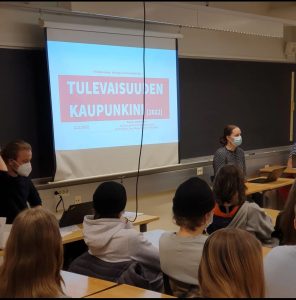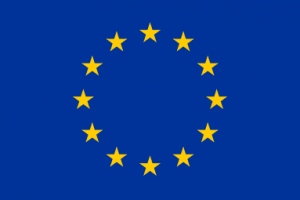"After we talked about the many possible futures, something started happening in my mind. It's hard to say what exactly, I'm not sure what it was. A weird feeling of inspiration and motivation..."
(From the learning diary of a participant, My city of the future 2023)
As mentioned in the previous post, at the beginning of its journey FEDORA established three open schooling networks in three specific locations: Bologna, Oxford and Helsinki. Since then, researchers, teachers, communicators, and other professionals worked together at the design of activities and materials based on FEDORA's research principles and results. The activities main aim has been to help young students in developing the skills they need to navigate our modern society by engaging them in future-oriented and society-related scientific issues.
The openschooling implementation designed by the Helsinki network, My city of the future, invited upper-secondary students to envision Helsinki in the year 2050. Focusing on systemic thinking and questions of energy production and use, the students took on the challenge to produce future posters, which were used to pitch a view of a desirable and sustainable future for Helsinki city officials.

A view of one student groups' poster draft. Some sections have been translated. Note the systemic view of the city and its change.
The course started with a brainstorming session to shake off any restraints of creativity: we imagined crazy, even absurd futures for Helsinki in a workshop by Johanna Ylipulli, smart city anthropologist specialised in participatory design of urban futures. Over the course, with workshops on energy production, futures thinking and systemic views of the city, the students met with a number of experts to discuss the future possibilities and challenges of the Finnish capital.

An audience of students from the school listen on as the participants outline their futures to the invited city representative (seen on the right). (Picture from the 2022 My city of the future course.)
After the course students began to conceptualise the future in a more positive, hopeful manner as compared to previous experiences. They indicated fuller consideration of the complexity of societal and environmental matters and learnt ways to understand and deal with uncertainty.
The course let students explore how to move from certain, hopeless futures with fixed mindsets towards more openness to alternatives and acceptance of the uncertainty of the future, while exploring the changes through reconsideration of agency, expertise and various drivers of change.
A "feeling" of those results can be clearly perceived in some students' quotes, like the one at the beginning of this article, and the one that follows:
"As you thing about the future, you might notice something, an issue that could be fixed (...) You can try to get to a place where you can influence that issue. And you can really decide what you want from your own future.”
(Student, post-course interview in 2022)
